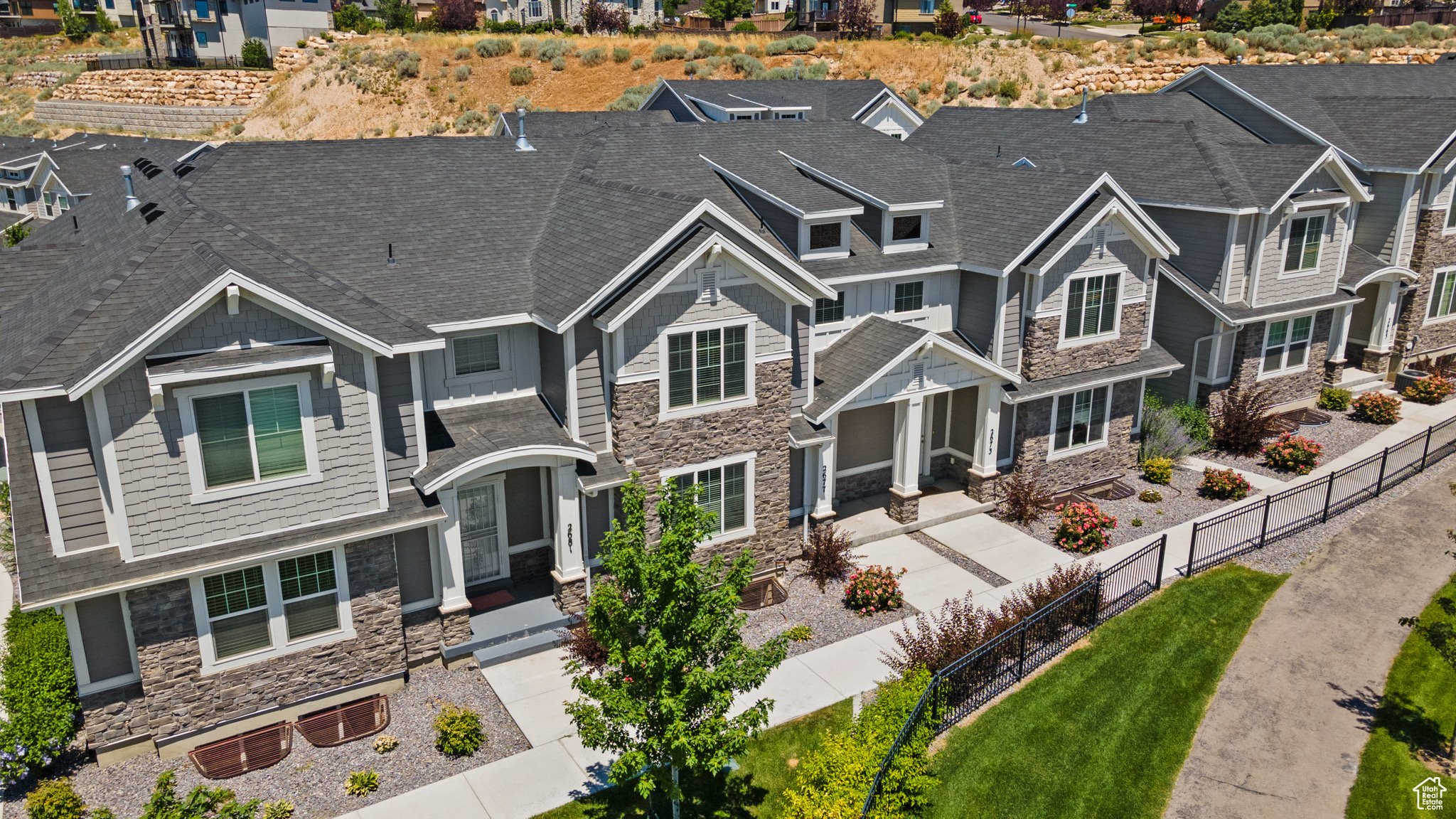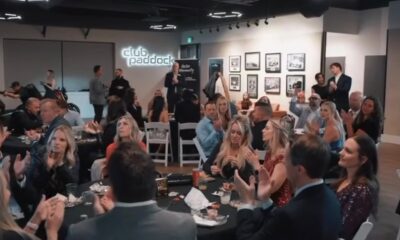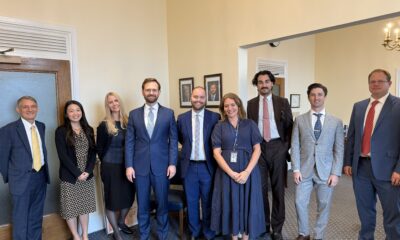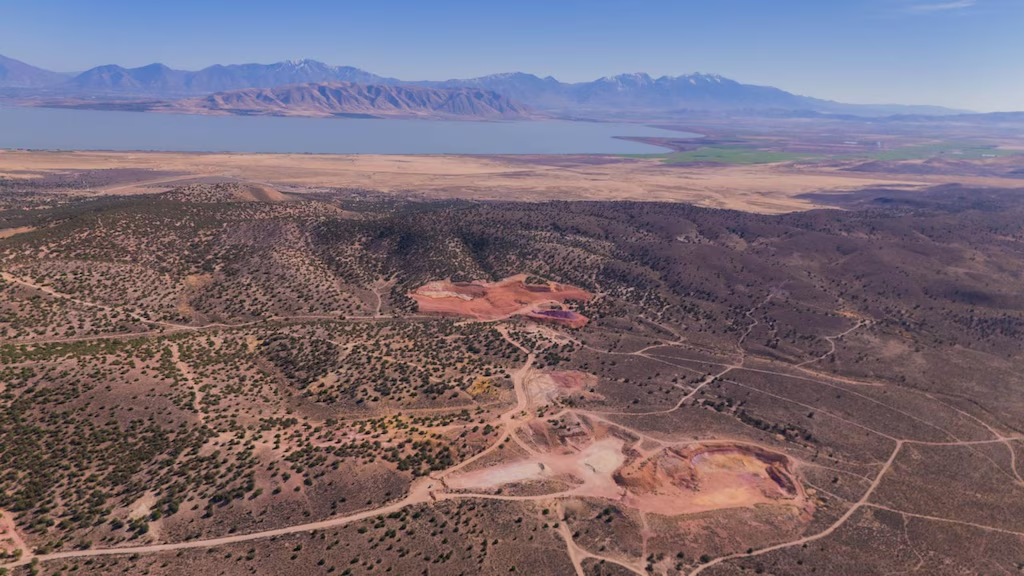Connect with us
Published
1 year agoon

Matt Hemmert | Lehi Free Press
On August 22, the Planning Commission heard Lehi City’s plan to amend the Development Code to include a Critical Homeownership Overlay Zone (“CHOZ”). The city explained that the proposed amendment’s development included months-long collaboration between multiple city departments and individuals. The intent of the proposal is to address the availability of affordable housing in Lehi City.
Lehi resident Jason Harris presented to the commission. Harris also serves as Vice President of Land Acquisitions for Fieldstone Homes. He said that he and City Councilmember Paul Hancock started to discuss housing attainability and affordability late last year, and Councilmember Heather Newell joined as a co-sponsor.
“I’m here supporting it because I’m a [Lehi] resident, and I feel like my experience in the industry for the last 19 years has given me the ability to look at things a little bit differently and say that we’re at a critical moment in our housing history and ask, ‘what can we do [differently]?’” Harris continued.
Harris explained that the concept is to take a designated area and reduce the land price, which is the most expensive development component. This price reduction would be accomplished by shrinking the lot size while attempting to keep home size and quality the same. Harris said using economic land efficiently can result in about “a 20 percent reduction in home prices.”
The CHOZ concept requires an applying developer to present two concept plans: one that reflects standard practices and quantified pricing and one that reflects an approximate 20 percent reduction in pricing with a CHOZ overlay applied. If the city and developer choose to follow the CHOZ route, a home target price would be agreed on between the developer and the city before being presented to the City Council for approval through a development agreement.
Homes for initial sale in a CHOZ overlay would be available for 30 days to critical and essential city workers, Lehi residents, and first-time homeowners before being made available to the general public. All homes must also be owner-occupied.
The proposed code also includes a formula that limits the amount of equity that can be gained during the first ten years of a home’s lifespan. This is to ensure low resell pricing during that period, aligning with the overlay’s intent.
“It really is a way to get around getting a zone change for an area,” Commissioner Brent Everett stated.
“Yes, but it’s because if you go through the zone change process, the value of the land goes up,” Lehi Planner Brittany Harris (no relation to Jason Harris) responded. She explained that the goal is to keep the land cost as low as possible.
“If we hopped on board immediately with a proposal of this magnitude, we’d be terrible public servants. This is a fantastic concept, and again, I applaud that we’re having this discussion. But I am not going to be such a lazy appointed public official that I sign off [on this] after a 20-minute presentation,” Commission Chair Greg Jackson said.
Jackson invited Hancock to address the commission, given that the council member had been referenced multiple times in the presentation.
“It’s unorthodox, and I’ll make my comments, and then I’ll duck out because, ultimately, [the city council is] going to get your recommendation,” Hancock said, not wanting to appear to pressure the commission. “This is a big thing. It’s something that Jason and I started working on shortly after the last city council election [and Jason Harris’ unsuccessful campaign].”
Hancock explained the process of building the CHOZ framework with the city’s planning staff and the development review committee and addressed the areas of commissioners’ concerns. Hancock said that the equity restrictions serve dual purposes: to keep buyers from turning the concept into a profit-making scheme while also providing for building equity that would otherwise go to rental payments. He stated that the transparency of requiring a developer to submit two concept plans and subsequently locking in pricing in the overlay would help keep developers from disproportionately profiting from increased home density. He also explained that introducing critical infrastructure into the analysis ensures that any additional infrastructure would not burden Lehi taxpayers. In closing, Hancock said that he sponsored the proposal as a proactive way to get ahead of state legislation on affordable housing that may have undesirable results.
During the public hearing, City Councilmember Michelle Stallings made an unprecedented move by expressing personal concerns in a commission hearing.
“I am speaking for myself as a private resident of Lehi City, although I guess my time on the city council comes into play also,” Stallings said. “My first concern is that this will just throw the General Plan aside.” Stallings also expressed concerns about the process behind the proposed code and about using municipal zoning authority to manipulate the price of land.
“I might call this possibly the most significant code change I’ve seen the whole time I’ve been on this commission,” Jackson said. “My gut feeling is, first of all, to table this. […] I want to dig into this more deeply.”
“This is not just a stone in the water with some ripple effects. This could be a tidal wave. If we’re going to have a manmade wave pool here, I want to make sure it’s a wave we want to ride,” Jackson continued. “I respect the work that has gone into this and the implications that this could have; it’s far too much to make a decision tonight.”
Jackson moved to table the agenda item and suggested holding a work session before bringing the issue back to the commission, which passed 4-1. The public will be notified of any future public hearing related to the CHOZ concept.



“Passion into purpose”: Local supercar owners donate over $60k to Make-A-Wish


United Way of Utah County brings Christmas hope to hundreds of families


QR codes add modern convenience to Lehi’s historical markers


The Ruth’s “A Christmas Carol” a magical holiday tale


Local child protection group takes its fight against big tech to the FTC


Willowcreek administrators spark holiday cheer for students


Teen entrepreneurs showcase innovation at Christmas market

Why a new mineral find near Utah Lake is drawing national attention
Aspen Peaks School Board approves budget, launches staff searches and boundary study


Lehi’s TSSD sewer rates to increase over 100% by 2027
